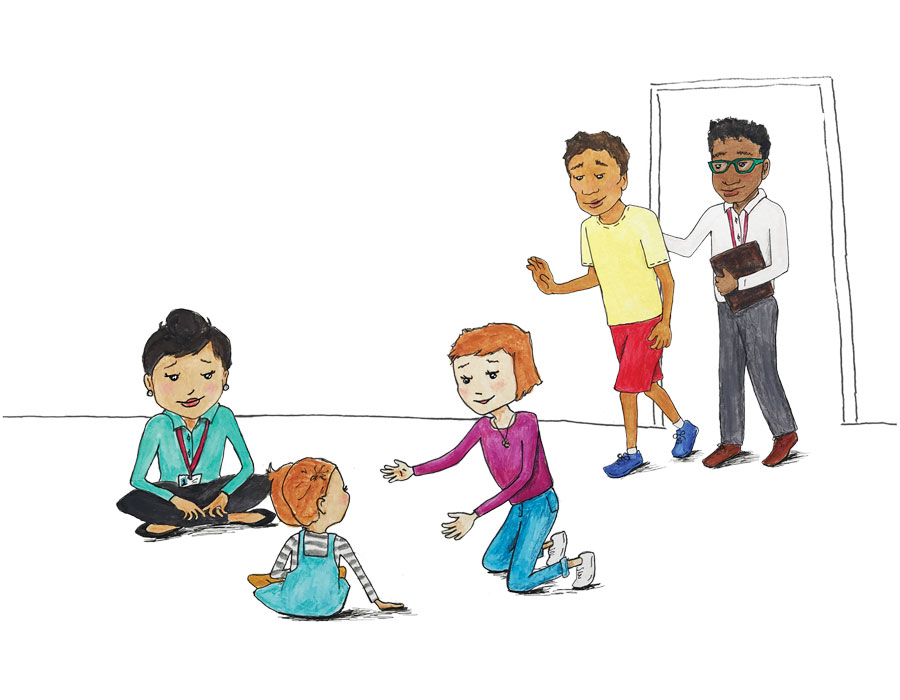A Tool for Conversations
When using the books as a teaching tool for those outside of the foster care community, allow for conversation and processing that encourages empathy and understanding.
Give children permission to talk about foster care. Let them know:
It is okay to talk about their situation and ask questions.
It is okay to not see situations in the same way as others or as the character in the book.
You will try to do a good job of listening.
You are a safe person to talk to with about any topic.
Their social worker/therapist is also available to talk through difficult topics.
If you are using this book with a child who sees a therapist, you may want to inform the therapist that you are using it at home—and perhaps provide a copy for the therapist as well.
Children's Reactions
Children in foster care face many difficult challenges. They may express a range of emotions while reading one of these books because the story has triggered something from their past. Some children may want to read the book on their own or have you read it over and over again. Other children may wish to put the book aside for a while. These are all appropriate responses.
Some common emotional responses may include:
Relief and a sense of well-being
Happiness
Sadness about specific events
Anger for the many losses they have experienced
Confusion because of misunderstanding or misinterpretations
Guilt, if they blame themselves for the challenges in their lives
Shame about the fact they are in foster care
Longing for a particular person or place
A sense of loss for people, places, possessions or anything else familiar to them
Regardless of their response, it is important that you validate their feelings and emotions. Responding in a compassionate way will help the child work through the variety of emotions they may feel. Some children may want to talk it out. Some may need to draw a picture of their reaction or use some other form of expression.
The goal is to focus on the fact that many people in their lives care about them and are there to help them. Remind them that they are loved and valued and precious in the sight of God and many others in their community of support.
Common Questions Children May Ask
Children in foster care often have many questions: When can I go home? Why am I here? Why can’t I live with my mommy or daddy? When will I see my parents? Am I safe? These questions can feel overwhelming. When talking to children about foster care, we recommend the following:
Use simple, age-appropriate language.
Be honest and straightforward (in an age-appropriate way).
Use pictures and images to help explain things to younger children. For example, you could look up images of judges and caseworkers on the Internet to help children understand the different people involved in foster care and their roles.
Validate all their feelings.
Do not villainize their birth parents.



